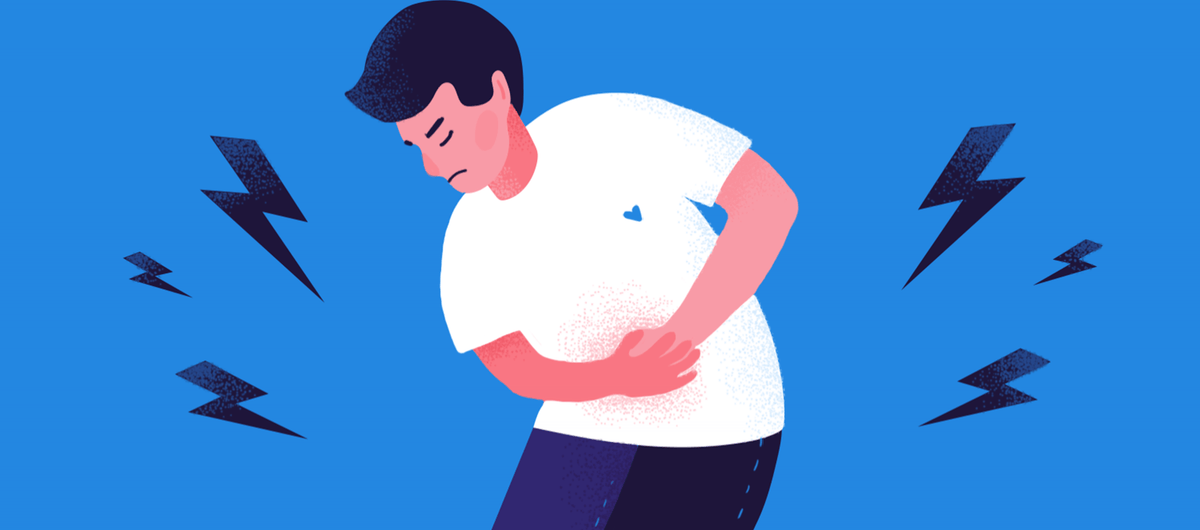
How to Fix Stress Bloating from Gut Bacteria and Cortisol
|
|
Time to read 5 min
|
|
Time to read 5 min
Let’s be real. Stress bloating is the absolute worst. You can eat a salad, drink water all day, do everything “right”… and by mid-afternoon, your stomach’s tight, uncomfortable, and somehow five inches bigger.
I used to think it was always about food. But then I noticed something strange: on calm, easygoing days, my stomach? Totally fine. But on those chaotic, deadline-heavy, anxiety-filled days? Bloated. Every time.
Turns out, it’s not just what’s on your plate — it’s what’s on your mind.
Your body’s stress response is just like flipping a switch. When you’re anxious or overwhelmed, your brain says, “This is not a good time for digestion,” and things slow down a lot.
Let’s break down what’s happening:
Cortisol is one of your main stress hormones. It’s great in emergencies, but not so great for your stomach. It slows digestion, reducing your body’s ability to break down food, and causes everything to sit around longer than it should. That leads to, you guessed it, bloating, gas, and discomfort.
There’s this thing called the gut-brain axis. Basically, your gut and brain are constantly talking. So when your brain is stressed, your gut listens — and responds. Sometimes, way too much.
That’s why stress can cause:
Stress also messes with your gut bacteria, which can increase gas production. If your stomach feels like a balloon after a long day, it’s not in your head…it’s in your gut.
Here’s what stress bloating often looks like:
Symptoms / What It Feels Like:
If this all sounds familiar, and it tends to pop up during stressful weeks or busy seasons — it’s probably not just what you ate.
Think of your digestive system like a conveyor belt. When you’re relaxed, it moves food along smoothly. But under stress, everything stalls. Gas builds. Food ferments. Boom—stress-related bloating.
The muscles in your gut don’t just stop — they can also spasm. That causes cramping, sharp pain, or a weird “fluttery” feeling in your stomach. It’s almost like your belly is reacting to stress, just like how your shoulders or jaw might tense up.
Chronic stress can mess up your microbiome. When those bacteria go out of balance, you get more inflammation, more gas, and a lot more discomfort.
If you’re dealing with stress bloating, here’s what’s worked for me (and what the science backs up too).
This sounds basic, but hear me out: you can’t digest well when your body thinks it’s in danger. That’s how stress works.
Try this:
You don’t need to become a monk. You just need to signal to your nervous system: "We’re good. Let’s digest."
Struggling daily? Claisen’s website offers calming supplements and gut support that work together to reset your system. Click on the button below, and try the quiz out yourself!
Stress makes us rush everything — including meals. And rushed eating = swallowed air = more stress-related bloating.
Try:
Also, during stress-heavy days, skip carbonated drinks and go light on salty snacks. They’re sneaky bloat triggers.
Fermented foods (like kimchi, yogurt, or kefir) are your friends. They help rebuild healthy bacteria and keep gas in check. If those aren’t your thing, look into probiotics.
Not sure what your gut needs? Claisen’s Personalized Gut Health quiz gives you a personalized plan in under two minutes—no guessing.
Sometimes, bloating sticks around no matter what you do. That’s when it’s worth checking in with a doctor — just to rule out anything more serious.
Look out for:
TL;DR – Your Gut Feels What You Feel
Here’s the truth: your gut doesn’t exist in isolation. It responds to your mood, your pace, your breath, your sleep. So yeah, stress really can bloat you out—and trying to “eat clean” while staying overwhelmed won’t cut it.
You don’t need a total life change to feel better. A few calming habits, some intentional meals, and the right support can seriously change how your body responds.
Stress can bloat you more than food by slowing digestion and messing with gut bacteria.
Cortisol stalls your digestive “conveyor belt,” causing gas and discomfort.
The gut-brain axis means stress in your head = stress in your stomach.
Simple fixes like deep breathing, slow meals, and fermented foods calm stress bloating.
If bloating never lets up, check with a doctor — it may be more than stress.
This article and its contents have been medically reviewed by Aditya Jain (MD at Harvard Medical School and Op-Ed Fellow at Doximity).


